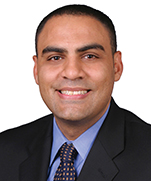In September 2024, HHS-OIG released a report highlighting the need for increased Medicare oversight of remote patient monitoring (RPM) services. The report identified a dramatic increase in RPM use, raising concerns about inappropriate billing and potential vulnerabilities in the current system. Based on the report’s findings, HHS-OIG provided specific recommendations to enhance CMS’s oversight of RPM services, which CMS agreed to consider.
Understanding RPM
RPM involves using technology to collect and transmit patient health data remotely. This data can include various physiological measurements, such as blood pressure, weight, glucose levels, and heart rate. Medicare covers RPM for a wide range of chronic and acute conditions, reflecting the potential benefits of the technology in managing various health issues. According to HHS-OIG, however, the program’s broad coverage has also led to an expansion of RPM services without the necessary infrastructure for effective oversight.
Key Findings from HHS-OIG Report
HHS-OIG’s investigation revealed several trends regarding RPM utilization and billing practices in Medicare. In the agency’s view, the government needs to respond to these trends with increased regulatory scrutiny to ensure program integrity and prevent financial waste, fraud, and abuse. HHS-OIG’s key findings include the following:
- Exponential Growth in RPM Utilization. The report documented a substantial increase in the use of RPM services within Medicare from 2019 to 2022. According to HHS-OIG, without proper mechanisms for tracking utilization and ensuring appropriate billing, this growth could lead to opportunities for fraud and abuse.
- Inconsistent Service Delivery. Remote patient monitoring consists of three main components: enrollee education and device setup, device supply, and treatment management. According to HHS-OIG, a significant portion of Medicare beneficiaries who received RPM services did not receive all three required components. The incomplete delivery of these services indicates potential issues with either the implementation or delivery of the RPM program and suggests that providers may be billing for services that were not fully rendered.
- Prevalence of Fraudulent Activity. According to HHS-OIG, its findings further solidify regulator concerns about potential fraudulent billing practices in the context of RPM, and support the continued need for increased surveillance and monitoring of RPM services.
- Critical Data Gaps. HHS-OIG’s findings also suggest that the Medicare program lacks the data necessary to properly oversee the furnishing of RPM services. For example, the report highlights a lack of consistent information regarding who ordered the RPM for each beneficiary, which hampers CMS’s ability to determine the medical necessity of the services provided and to identify instances of inappropriate billing.
HHS-OIG Recommendations for Improvement
Based on the report’s findings, HHS-OIG provided several specific recommendations to strengthen CMS’s oversight of RPM services:
- Strengthening Safeguards Against Fraudulent Billing. Implementing robust safeguards is key to preventing and detecting fraudulent billing practices within the RPM program. This includes developing and implementing improved auditing and monitoring procedures.
- Mandatory Ordering Provider Information. CMS should mandate that all RPM services be ordered by a qualified healthcare provider, with this information clearly documented in claims and encounter data.
- Tracking Specific Health Data. CMS should develop mechanisms for identifying and tracking the types of health data collected through RPM to aid in overseeing the quality of services and ensuring appropriate utilization of RPM.
- Comprehensive Provider Education. CMS should provide clear and comprehensive education to healthcare providers regarding appropriate billing and coding practices for RPM services.
- Increased Monitoring of RPM Companies. CMS should establish a system to proactively identify and investigate suspicious billing patterns by actively monitoring companies that bill for RPM.
CMS concurred with or stated that it would consider all of the OIG’s recommendations. Organizations providing RPM services should proactively monitor for any changes stemming from these recommendations and take the necessary steps to ensure compliance with all current RPM regulations and policies.


